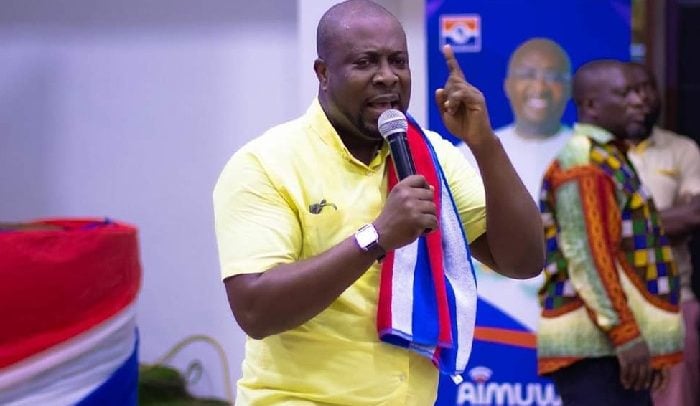The arrest and subsequent remand of Kwame Baffoe, also known as Abronye, the Bono Regional Chairman of the New Patriotic Party (NPP), has ignited a firestorm of controversy in Ghana’s political landscape. Salam Mustapha, the NPP’s National Youth Organiser, responded to the incident with a stern warning to the ruling National Democratic Congress (NDC), declaring that “power has an end, the tables will turn, and we will all have our revenge.” This statement underscores the deep political divisions and tensions that currently permeate the nation’s political discourse. Abronye’s arrest, which occurred on Monday, September 8th, was officially attributed to “offensive conduct conducive to the breach of public peace,” a charge that has been met with skepticism by some who view it as politically motivated.
Abronye, a prominent figure within the NPP, is known for his outspoken and often controversial political commentary. He has been a vocal critic of the NDC government, frequently accusing them of corruption and mismanagement. His arrest comes just days after he sought political asylum in eight countries: the United States, United Kingdom, France, Italy, Canada, Spain, Germany, and Côte d’Ivoire. In his asylum application, Abronye cited persecution and threats to his life, alleging that the government was using state security institutions to silence him and other opposition voices. This claim adds another layer of complexity to the case, raising concerns about freedom of speech and political dissent in Ghana.
The circumstances surrounding Abronye’s arrest and the subsequent search of Moses Abor’s home, a former NPP Youth Organiser, have further fueled suspicions of a politically motivated crackdown on opposition figures. While the police maintain that the arrest was based on legitimate grounds, the timing and the nature of the charges have led many within the NPP to believe that Abronye is being targeted for his political views. This perception of politically motivated prosecution is likely to exacerbate existing tensions between the NPP and the NDC, potentially contributing to a more polarized and volatile political environment.
The ongoing case against Abronye highlights the fragility of democratic institutions and the importance of upholding the rule of law. A fair and impartial judicial process is essential to ensure that individuals are not unjustly targeted for their political affiliations or opinions. The judiciary must demonstrate its independence and impartiality in handling this case to maintain public trust and confidence in the justice system. Any perception of bias or political influence will further erode public trust and could have far-reaching consequences for the stability of Ghana’s democracy.
The unfolding events surrounding Abronye’s arrest and detention underscore the broader challenges facing Ghana’s political landscape. The increasing polarization of political discourse, coupled with allegations of political persecution and the use of state institutions to silence dissent, pose a serious threat to the health of Ghana’s democracy. It is crucial for all stakeholders, including political parties, civil society organizations, and the media, to work towards fostering a more tolerant and inclusive political environment where dissenting voices are respected and protected, and where the rule of law is applied equally to all, regardless of political affiliation.
The outcome of Abronye’s case will have significant implications for the political future of Ghana. A conviction could be seen as a validation of the government’s actions and potentially embolden further crackdowns on opposition figures. Conversely, an acquittal could be interpreted as a rebuke of the government and a vindication of Abronye’s claims of political persecution. Regardless of the verdict, the case is likely to have a lasting impact on the political landscape, shaping the dynamics between the NPP and the NDC and influencing public perceptions of the government’s commitment to democratic principles. The international community will also be closely watching the proceedings, as the case has raised concerns about human rights and freedom of speech in Ghana. The government must ensure that the judicial process is transparent and fair to maintain its international standing and demonstrate its commitment to upholding democratic values.














